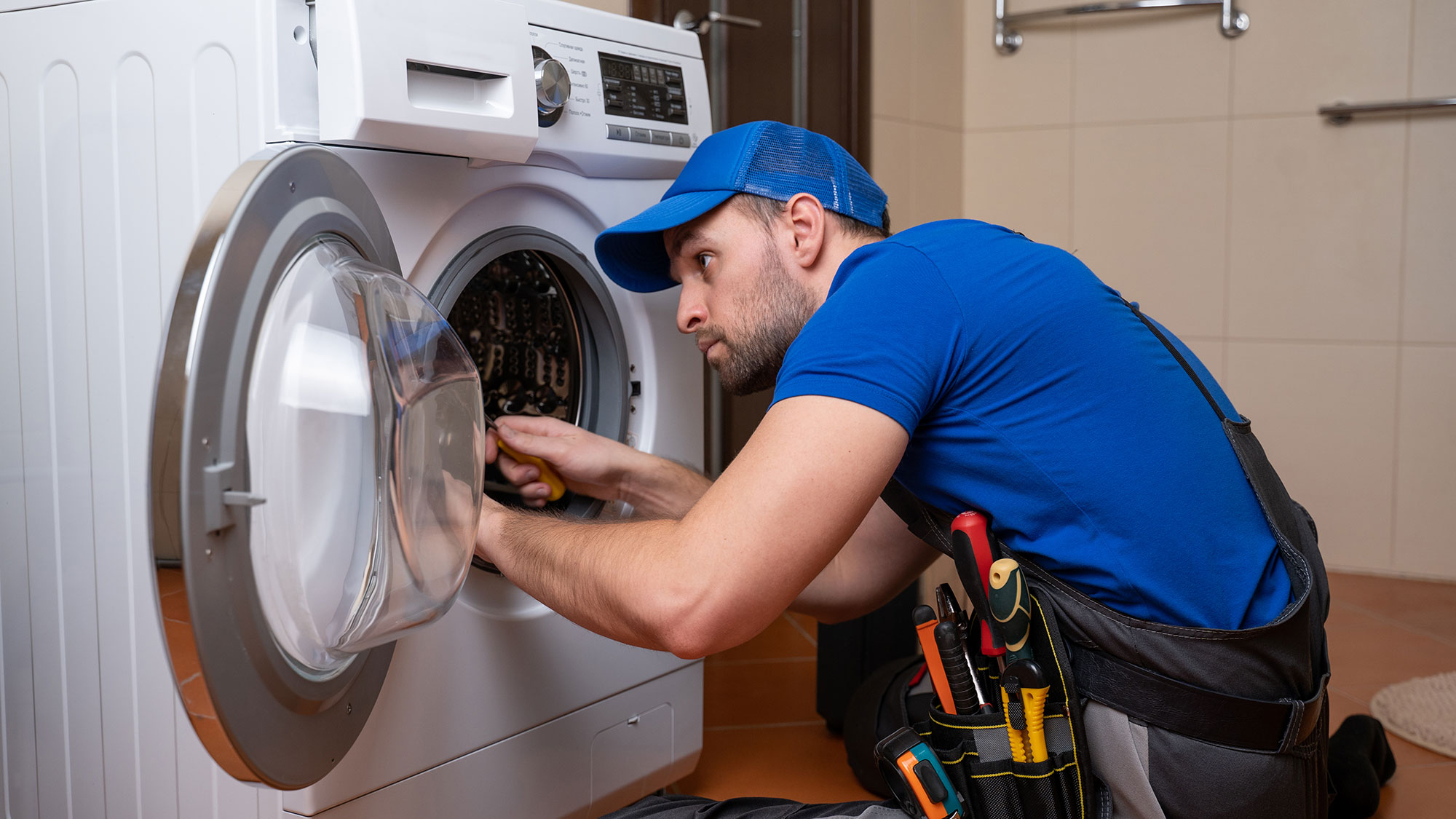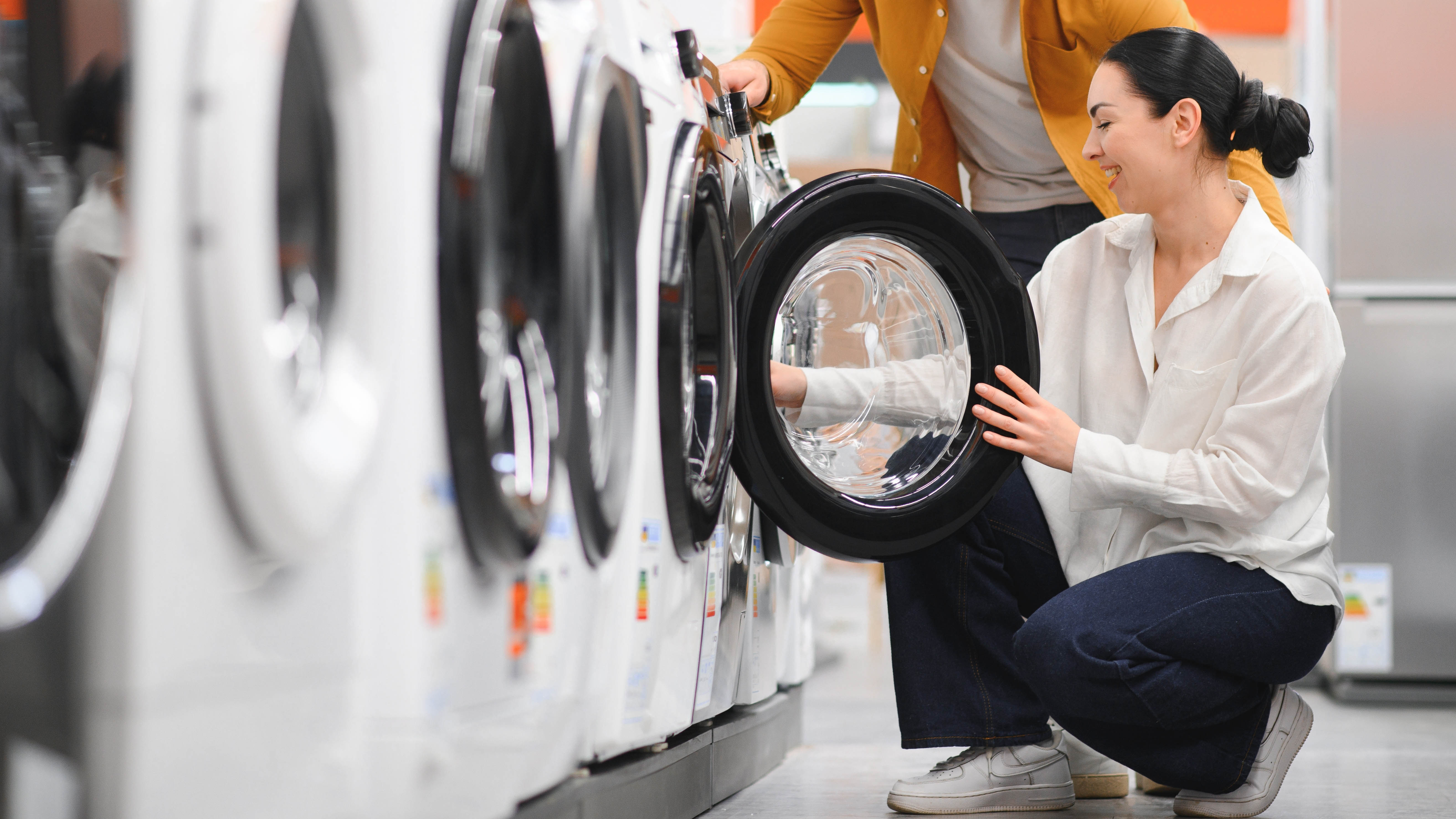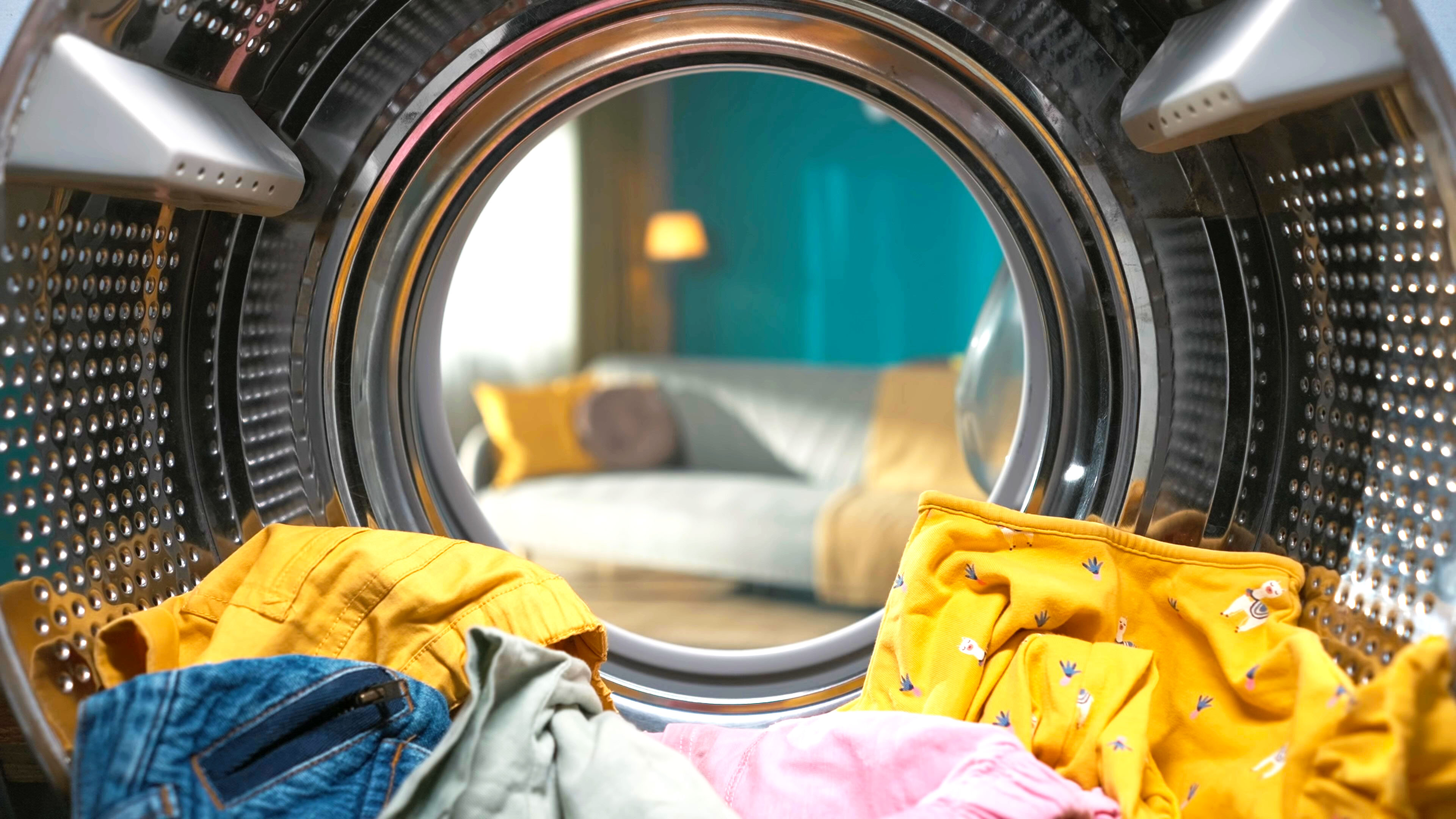
When it comes to laundry days, your washing machine is an unsung hero, cleaning your clothes and making them smell fresh. But when it stops working, you quickly realize what a staple it is in your daily life — especially if you have kids or pets.
If your washing machine breaks, you’ll need to consider whether to repair it or buy a replacement, but making that decision can be more complicated than it sounds.
Luckily, we consulted an appliance expert for advice on when it makes sense to repair a washing machine or when replacing it with one of the best washing machines is a better option. Read on to learn more.
When to repair your washing machine
The exact answer to when it makes sense to repair your washing machine varies from situation to situation. “The first thing to ask yourself is, do you like the machine, and does it do what you need it to do?” says Glenn Lewis, president of Mr. Appliance, a Neighborly company. “If the answer to those two questions is yes, then it’s worth having a service professional do a complete diagnostic on your washer.”
An appliance repair technician will inspect your washing machine to determine the exact issue. “Once we know what is wrong and what it will take to fix it, we can talk about the pros and cons of repairing it,” says Lewis. “If you like the washer you have and the parts are available, we can fix it, and you will have your washer back as well as new.”
Some of the most common repairable washing machine issues include the following:

- A faulty control panel
- Failure to drain water from the drum
- Failure to spin
- Excessive vibration/unusual noise while machine is running
- Leaking water
- A clogged drain pump
- Unpleasant smells
- The presence of mold
New washing machines come with a manufacturer’s warranty that covers the cost of repairs within a specific time frame after purchase. The warranty lasts a year for many machines, though some brands may offer longer warranties. If the machine is still under warranty, it’s well worth contacting the manufacturer to request a repair.
Similarly, a home warranty can cover your washing machine repair. A home warranty is a type of service plan that covers your home’s main systems and appliances, including your washer and dryer. Home warranties are often included by sellers when you buy a house, but you can buy one for your home anytime. If you have a home warranty, check whether washing machine repair is covered and submit a service request.
When to replace your washing machine

Replacing your washing machine might be the best option in some cases. If the cost to repair the machine is more than 50% of the cost to buy a new one, should probably go the latter route. It can be especially tempting to replace a machine if it’s older than 10 years since modern washers are usually more energy-efficient and may come with bells and whistles lacking from your current machine.
If the cost to repair the machine is more than 50% of the cost to buy a new one, should probably go the latter route.
“If you are thinking about a replacement, though, ask yourself, Do I buy them in pairs? Are we talking about just a washer or a washer and dryer? Do I have the time to research the new machines, order them, wait for delivery, and then learn how to work them? If so, then new machines could be an option for you,” says Lewis.
Replacement is advisable if you spot these 7 signs that you need a new washing machine, especially if there are any safety issues, such as sparking wires or excessive water leakage. The cost to repair these issues can be significant, and ignoring them can be incredibly dangerous.
How long do washing machines last?

On average, washing machines last 10 to 13 years, but with proper maintenance, they can last 15 years or longer. In addition to avoiding these 7 mistakes that could be damaging your washing machine, you can lengthen the lifespan of your washer by doing the following:
- Don’t overuse detergent. Too much detergent can coat your machine and its parts with a residue that can clog up your machine and cause it to malfunction
- Check the hoses. Every washing machine has three hoses: one for hot water, one for cold water, and one to drain water from the machine. Check them monthly for cracks and replace them if they start to feel brittle
- Dry the door gasket. Front-loader washing machines can easily develop mold if you leave standing water in the door gasket after emptying the machine. Leave a pile of old rags in your laundry room and dry the gasket thoroughly after each use
- Keep it clean. “Do a monthly cleaning to your washer,” advises Lewis. “There are plenty of products on the market to help you with this.” You can also clean your washing machine with items you already have in the house, like vinegar, bleach, or baking soda
What if I do nothing?
Ignoring an issue rarely makes it go away. And if you ignore warning signs on your washer, you could pay more to repair it in the long run. “When you hear a noise or see a small issue, now is the time to call a service technician before a small thing turns into a big thing,” Lewis advises.
If a small and repairable issue becomes too big, it might be cost-prohibitive to repair it once you finally call in the pros. In that case, you might need to buy a new washing machine, which will almost certainly cost more than the initial repair would have.







